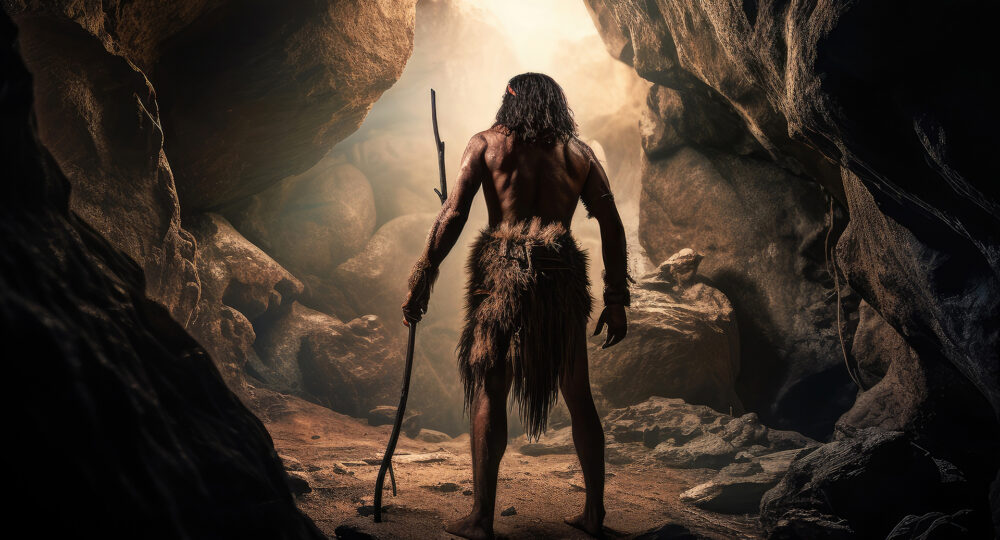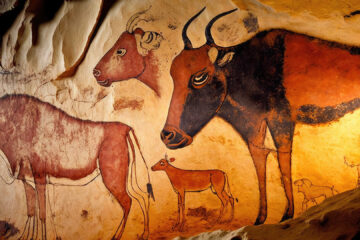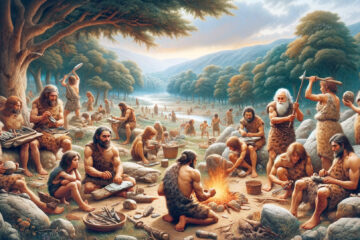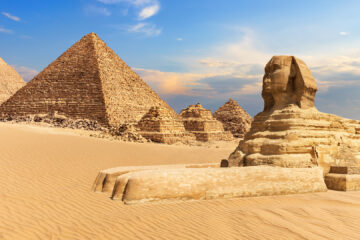
Emergence and Evolution: The Epochal Journey of Human Civilization
From the dawn of time, human civilization has embarked on an incredible journey, evolving from scattered bands of hunter-gatherers to complex, interconnected societies. This article delves into this remarkable progression, focusing on key periods and developments from 11,000 BCE to the present.
Dawn of a New Era: The Agricultural Revolution
The conclusion of the last Ice Age, around 11,000 BC, marked a pivotal shift in human history. As the Earth’s climate stabilized, our ancestors began transitioning from nomadic lifestyles to settled agriculture. This era, known as the Neolithic Revolution, saw the domestication of plants and animals, fundamentally altering human interaction with the natural world. Settlements like Göbekli Tepe in modern-day Turkey underscore the profound societal changes during this period.
Building Blocks of Society: The First Civilizations
Fast forward to around 3000 BC, the cradle of civilization witnessed the rise of the first cities in Mesopotamia, the land between the Tigris and Euphrates rivers. This era was characterized by the invention of writing, the formation of states, and the development of legal systems, exemplified by the Code of Hammurabi in Babylon. Simultaneously, ancient Egypt thrived, leaving a legacy of monumental architecture and complex religious beliefs.
Intellectual Awakening: The Classical Age
The Classical Age was a period of remarkable intellectual and cultural development. In Greece, democracy took root in Athens, and philosophers like Socrates, Plato, and Aristotle laid the foundations of Western philosophy. Meanwhile, the Roman Empire expanded, bringing unprecedented political stability and engineering feats across Europe. This era also saw the flourishing of Indian and Chinese civilizations, with the spread of Buddhism and Confucianism shaping societal values.
Crossroads of Faith: The Middle Ages
The fall of the Roman Empire gave rise to the Middle Ages, a time often characterized by feudalism, the rise of the Christian church, and, later, the Islamic Caliphates. This era witnessed significant events like the Crusades and the Black Death, profoundly impacting European society. China’s Tang and Song dynasties made remarkable technological, scientific, and cultural advances in the East.
A New Worldview: The Renaissance and Enlightenment
The Renaissance, beginning in Italy in the 14th Century, reawakened interest in classical learning and art. Figures like Leonardo da Vinci and Michelangelo epitomized the era’s spirit, combining art, science, and humanism. The Enlightenment further pushed the boundaries of knowledge and reason, setting the stage for political revolutions and questioning traditional authority.
Industrial Transformation: Domination of Machines
Triggering in the late 18th Century, the Industrial Revolution marked a major turning point as societies transitioned from agrarian to industrial economies. Innovations in machinery, transportation, and communication, exemplified by the steam engine and the telegraph, reshaped daily life, economic systems, and the global balance of power.
Global Conflict and Change: The 20th Century
The 20th Century was a time of stark contrasts, characterized by two world wars, the Great Depression, the Cold War, and the struggle for civil rights. It was also a period of incredible technological advancement, culminating in the moon landing in 1969. The digital revolution closed the Century, fundamentally changing how people interact and access information.
Into the Future: The 21st Century and Beyond
As we venture into the 21st Century, we face new challenges and opportunities. Technological innovations continue breathtakingly, while global issues like climate change, pandemics, and socio-economic inequalities demand collaborative solutions. The story of human civilization is one of resilience and innovation, and as history shows, our journey is far from over.









